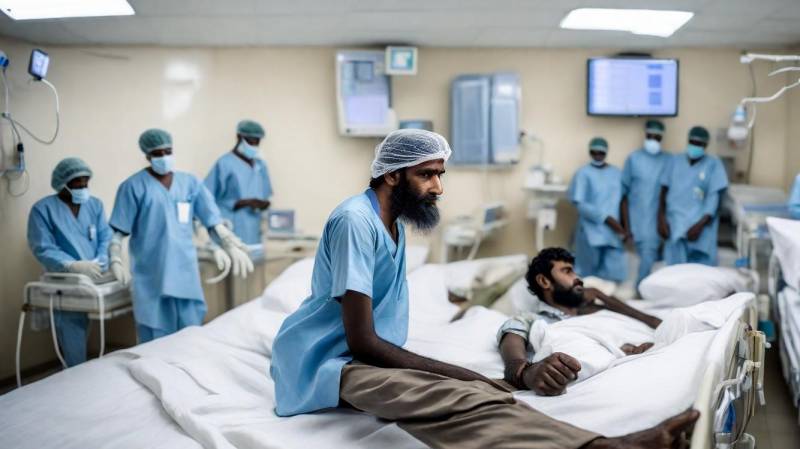
In a string of alarming events, a second doctor has fallen victim to the Congo virus in Quetta, Balochistan, on November 8, intensifying concerns about the spread of Crimean-Congo Hemorrhagic Fever (CCHF) in Pakistan. The first victim lost his life on November 5 while being transported to Karachi for treatment.
The first doctor to succumb to the Congo virus, Dr Langrove, had to endure a 12-hour journey on the congested National Highway 25 to reach Karachi. Perhaps a more efficient transportation system could have saved his life.
Dr Langove, originally from Awaran, Balochistan, pursued his medical studies at the North Sichuan Medical University in China. At the time of his diagnosis with the Congo Fever, he was serving as a second-year resident at the Civil Hospital in Quetta.
Unconfirmed reports suggest that around 12 doctors and medical staff have tested positive for the Congo virus, highlighting the pressing need for comprehensive measures to curb further spread.
The stark reality is that healthcare providers in Balochistan operate in hazardous conditions without proper compensation. The loss of two doctors to the Congo virus underscores the pressing need for improved medical infrastructure and comprehensive support for healthcare professionals working in the province.
The public health sector faces a severe lack of resources, which is aggravated by insufficient expenditure from the limited budget. In the 2022-23 budget, a mere Rs23,546.02 million was allocated to the health department for a population of approximately 15 million in Balochistan. Further, young doctors in Quetta have gone unpaid for the past seven months
Dr Arif Ali, the spokesperson of the Young Doctor Association (YDA), shared that the condition of the ICU at Quetta's Civil Hospital does not meet the standards set by the WHO. He suggested that the Congo virus patient brought to the hospital was treated without essential protective gear, such as gloves, masks, and personal protective equipment (PPE).
The current situation demands swift action from the provincial government – to identify the virus's source and curb its spread. Presently, the healthcare system is ill-equipped to handle such an epidemic. Addressing the improper disposal of medical waste, particularly syringes and needles left in open bins or strewn outside, is crucial in preventing additional infections among doctors and healthcare staff.
Further, the doctor-to-patient ratio in Balochistan is alarmingly skewed at 1:1000. The public health sector faces a severe lack of resources, which is aggravated by insufficient expenditure from the limited budget. In the 2022-23 budget, a mere Rs. 23,546.02 million was allocated to the health department for a population of approximately 15 million in Balochistan. Adding to the crisis, young doctors in Quetta have gone unpaid for the past seven months.
There is only one ICU facility at the Civil Hospital. The Bolan Medical College Hospital lacks an ICU facility, contrary to the hospital's tertiary healthcare status.
In May 2023, 18 people were diagnosed with the Congo virus, thus highlighting the urgency to eliminate risk factors for healthcare professionals – by providing necessary protective facilities.
In the face of this alarming crisis, urgent and comprehensive reforms are required to address the healthcare system's inadequacies, protect the lives of medical professionals, and prevent further tragedies. Keeping in mind the contagious nature of the virus, it is vital to ensure safe conditions for patients and healthcare staff. It also invites the adoption of prophylactic measures to prevent future outbreaks.

